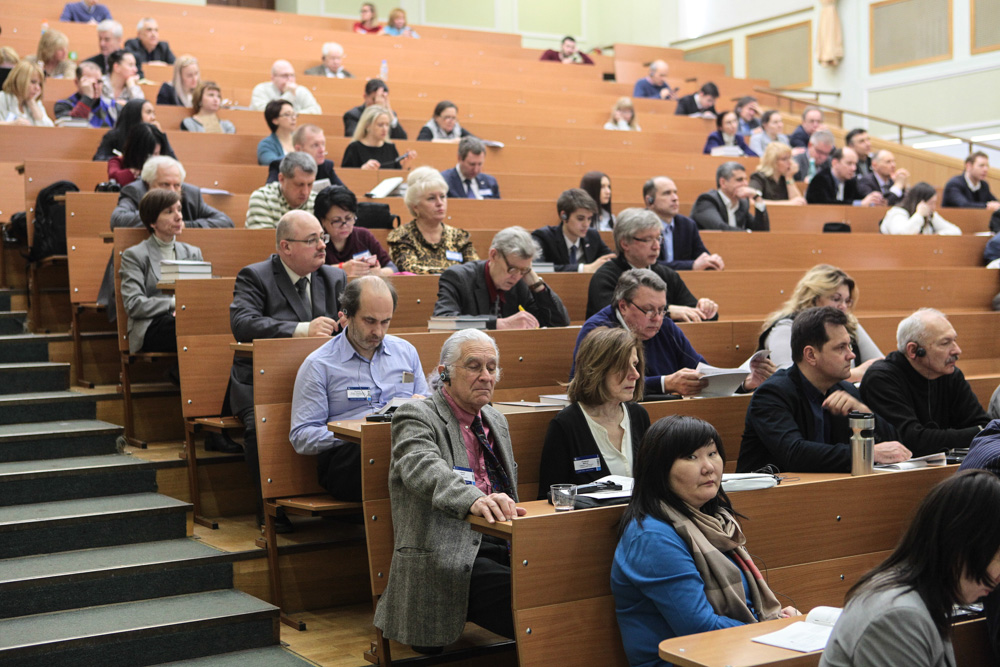
Published: March 30th, 2017
On March 30, 2017, within the framework of the Moscow Economic Forum, a round table titled "New Industrial Society: reboot" was held, the main accent speakers made on the problems of transition to modern technologies.
James Galbraith opened the round table with the story of his father's book: 50 years ago an American John C. Galbraith wrote the book "The New Industrial Society". At one time the book became revolutionary, because it took into account the public's attention to the economy. According to the expert, experience has shown that a classical orthodox economy can lead to disaster. This is observed in Germany, in North Korea. The speaker gave an example of the experience of Latin America, where new methods have been successfully implemented for the past 20 years.
Honorary Professor of Economics, Brooklyn University and City University of New York, editor of the journal Science and Society, David Leibman made a presentation on improving the efficiency of the modern economy. In Western countries, the expert noted, there is an increase in the share of profits as a result of increasing productivity, which is the cause of the financial crisis. An increase in basic income may be another factor. However, the speaker is confident that further increases in labor productivity will provide serious opportunities for a more creative, inspired development.
"Increasing labor productivity is part of the overall economic analysis that you need to apply to each of the societies in order to determine the potential emergence of crisis situations in this society," summed up David Leibman.
The theme of the speech made by Doctor of Science, Professor of the Financial University Dementiev Vyacheslav Valentinovich, was "Profit and Economic Power". Dementiev allocates the provision of a positive rate of return as the main condition for economic growth. The professor is convinced that "Capital is afraid of lack of profit, as nature is afraid of emptiness".
"We need to create systems that counterbalance the authorities, so that one cannot extract the rent at the expense of another. And this idea is a balancing power. In our conditions, it assumes essential significance, if we are going, we plan the ideas of such institutional changes that will change the institutional models of profit maximization," the expert notes.
Jeffrey Sommers, a professor of political economy at the University of Wisconsin-Milwaukee, an expert on international political economy and a capital accumulation crisis, spoke about taxation that can finance industrialization, as well as create a new balance of the economy. The speaker says that it is necessary to introduce a flexible tax policy that would be aimed at providing the necessary financing, as well as rethinking the attitude towards money and debts.
The expert also noted that projects in the field of space exploration that can stimulate the development of new technologies can become an important component of Russia's development.
At the end of his speech, Jeffrey Sommers emphasized that in order to prevent capital flight the work on international cooperation should be continued.
Professor of Cambridge University, editor-in-chief of the Cambridge Journal of Eurasian Studies, Saxena Siddharth, told about science, innovations and education: "Science is like in history and in music - it is a manifestation people's of initiatives and interest in the surrounding life," the professor said. According to the expert, innovative production is possible only with the support of scientific thought.
"Russia, on the contrary, is in the period of re-industrialization. And we see that, among other things, there is a serious human capital here. And this means that you do not need to start from scratch, but simply rebuild and develop that is already there. " To this conclusion came Saxena Siddharth.
The problem of the new industrial revolution was discussed by Professor Sergey Aleksandrovich Tolkachev, head of the Department of Economic Theory at the Financial University. The expert concluded that the cyclical development of technological structures produces a corresponding cyclical change of global regimes of foreign economic policy, which is beneficial to the most advanced countries in the world.
Participants of the roundtable came to a common opinion that it is necessary to restore industry for the development of the Russian economy. This requires innovative state decisions, promising government programs, the reorganization of relevant institutions and much more. The revival and further development of the system of integrating production with science and education that was destroyed during the years of reforms is of particular importance. This should be done in new economic forms that use the potential not only of central management, but also market opportunities in the conditions of functioning of state and private property.Latest news
07.05.2018 MEF-2018: debate "Cultural policy: between individual freedom and the interests of society?"
07.05.2018 MEF-2018: Conference No. 8
07.05.2018 MEF-2018: Conference No. 4
07.05.2018 MEF-2018: Conference No.3
07.05.2018 MEF-2018: Conference No. 2
07.05.2018 MEF-2018: Conference No.1
26.04.2018 McConnell Discusses Information Warfare
20.04.2018 MEF-2018: closing plenary session
17.04.2018 Mr. Freysinger: «Skripal’s case» for relationship between Russia und European Union?
